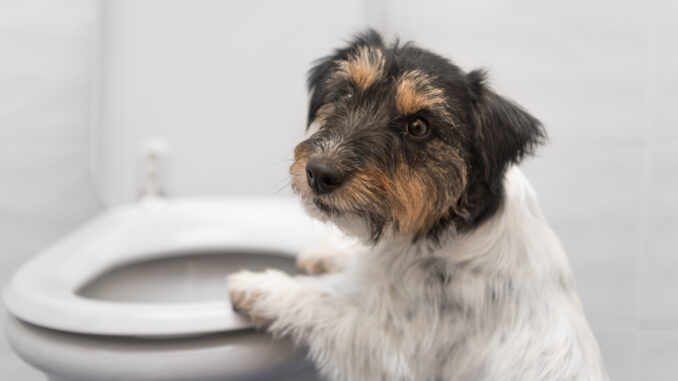
This article was updated on March 15th, 2024
Post-surgery diarrhea is a frequent concern among pet owners after their animal undergoes a procedure. As a veterinary surgeon, I’ve encountered and treated this issue often and will outline when it’s normal, with 5 tips to reduce or prevent it.
Does this diarrhea mean there is an issue with the surgery?
Most of the time, it does not mean that there is a problem with the surgery; it’s important to know it doesn’t automatically indicate a problem. Let’s see what is causing your dog’s issues, and what can be done to help your dog.
Diarrhea is often caused by anesthesia drugs which can slow down gut movements.
After any type of surgery, it is common for dogs to experience a decrease in appetite and digestive issues such as diarrhea following the procedure.
Anesthetic drugs are largely to blame: anesthesia slows down the normal movements of the gut that help food move along the intestine; this means that food isn’t properly digested, resulting in diarrhea. Anesthesia also decreases the natural bacterial balance in the gut which can lead to decreased absorption of nutrients and water, also causing diarrhea.
Additionally, changes to your pet’s diet or medications may disrupt their normal gastrointestinal activity; a lot of prescribed pain medication will affect a dog’s GI tract.
Furthermore, pets may be especially stressed while recovering from surgery – stress hormones can cause temporary gastric distress, leading to episodes of diarrhea.
Mild and short bouts of diarrhea are generally nothing to worry about.
However, if your dog’s diarrhea persists for more than 2-3 days, it is very important to contact your vet as soon as possible to assess the situation.
5 tips to help your dog at home
Thankfully, there are some steps you can take at home to help reduce your dog’s post-operative diarrhea and ease their recovery process. Make sure you always check with your vet before trying any home remedies:
1. Offer small portions of food throughout the day.
Instead of one large meal, offer your dog smaller portions. This will help ensure that all food is properly digested by their gastrointestinal system.
2. Give your dog’s pain medication on time.
If your vet has prescribed pain medication after surgery, make sure that your dog is taking the medication on time. This will help reduce inflammation that could be contributing to their diarrhea.
3. Give your dog probiotics.
Give your dog probiotics to help balance the good bacteria in their gut. This will improve digestion and reduce inflammation. Probiotics contain healthy bacteria that may help your dog recover faster. One example is “Purina FortiFlora Probiotics for Dogs”, as listed below on Amazon:
4. Keep your dog hydrated.
Make sure your dog has easy access to water bowls. You can also offer fluids like bone broth or electrolytes to help keep them hydrated.
5. Avoid drastic changes.
Avoid drastic changes to your dog’s food, treats, or environment while they’re still adjusting to their post-operative lifestyle. Create a comfortable and relaxing space and keep noisy children or other pets away! This will reduce stress levels and ultimately help them heal faster. Learn more with our home remedies to help a dog recover from diarrhea.
When is my dog going to get better – and stop having diarrhea?
In most cases, you can expect that diarrhea after surgery won’t last more than a couple of days as long as the cause is something simple, like normal post-anesthesia stress or a change in diet.
However, you should contact your veterinarian if the symptoms:
- persist beyond a few days,
- are accompanied by changes in stool color and consistency,
- suddenly become worse, and/or
- are accompanied by other concerning symptoms such as vomiting, fever, loss of appetite or lethargy.
In the end, it’s always best to call your vet if you see any signs that something is not quite right.
Common issues after surgery:
Disclaimer: This website's content is not a substitute for veterinary care. Always consult with your veterinarian for healthcare decisions. Read More.



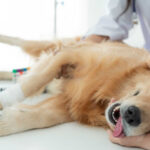
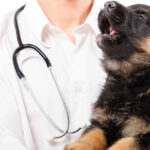
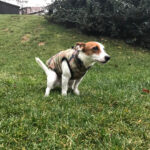

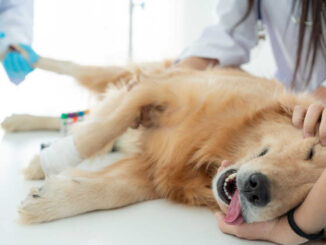
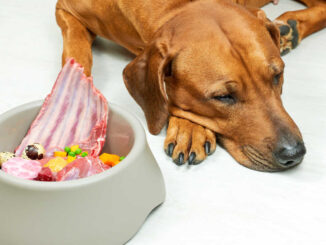
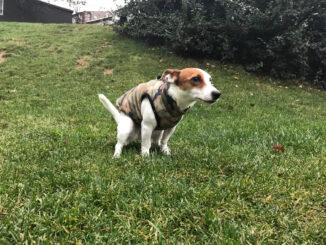
Be the first to comment